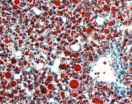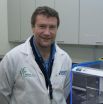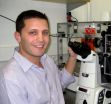(Press-News.org) Researchers at Cambridge and Cardiff have found that, on average, a normal healthy person carries approximately 400 potentially damaging DNA variants and two variants known to be associated directly with disease traits. They showed that one in ten people studied is expected to develop a genetic disease as a consequence of carrying these variants.
It has been known for decades that all people carry some damaging genetic variants that appear to cause little or no ill effect. But this is the first time that researchers have been able to quantify how many such variants each of us has, and list them. This figure of 400 is likely to increase as more and more powerful genetic studies discover rare genetic variants more efficiently. Such research brings to the fore ethical questions surrounding anonymous studies and incidental findings.
"For over half a century, medical geneticists have wanted to establish the magnitude of the damage caused by harmful variants in our genomes," says Dr Yali Xue, lead author from the Wellcome Trust Sanger Institute. "Our study finally brings us closer to understanding the extent of these damaging mutations.
"We measured the number of potentially damaging variants in the genomes of apparently normal healthy humans by comparing two different datasets: whole genome sequences from 179 people in the 1000 Genomes Pilot Project, who were unlikely to have any overt genetic disease at the time of sampling, and information from the Human Gene Mutation Database (HGMD), a detailed catalogue of human disease-causing mutations that have been reported in the scientific literature."
In many cases, the disease or damaged variants were single, 'recessive' genetic variants that are unlikely to cause any harm to the carrier. A recessive genetic variant will only exert its effect when two copies – one in each chromosome – are present.
In one in ten people, however, the team could point to a potential clinical effect of the genetic variants. This is because these people either carry two copies of a specific recessive disease variant, or alternatively a dominant genetic variant. Dominant disease genetic variants can give rise to a disease trait when even a single copy is present.
"In the majority of people we found to have a potential disease-causing mutation, the genetic condition is actually quite mild, or would only become apparent in the later decades of life," says Professor David Cooper, lead author of the study from Cardiff University. "We now know that normal healthy people can possess many damaged or even completely inactivated proteins without any noticeable impact on their health. It is extremely difficult to predict the clinical consequences of a given genetic variant, but databases such as HGMD promise to come into their own as we enter the new era of personalized medicine."
Catalogues of disease-causing variants such as HGMD have been created over the past two decades but they are still far from complete. Disease variants are generally extremely rare and comprehensive searches for such mutations in many populations have scarcely begun.
The genome samples selected for this study were anonymized so the participants could not receive any information about whether or not they might be at risk for a particular genetic disorder. This is increasingly becoming an ethical issue for medical geneticists.
"Should incidental findings be fed back to people who have volunteered their sample to a study? There is no clear answer to this question," says Dr Chris Tyler-Smith, lead author from the Wellcome Trust Sanger Institute. "All of our genomes contain flaws; some of us will carry deleterious variants but will not be at risk of acquiring the associated disease for one reason or another. For others, there will be health consequences, and early warning could be useful, but might still come as an unwelcome surprise to the participant."
As DNA sequencing becomes more commonplace, geneticists must determine the most ethical way to handle this sensitive information.
###
Notes to Editors
Publication Details
Yali Xue, Yuan Chen, Qasim Ayub, et al (2012). 'Deleterious- and Disease-Allele Prevalence in Healthy Individuals: Insights from Current Predictions, Mutation Databases, and Population-Scale Resequencing'
Published online in American Journal of Human Genetics on 06 December
Volume: 91; Issue: 6; Manuscript: 1298; DOI: 10.1016/; PII
Funding
This study was funded by the Wellcome Trust and BIOBASE GmbH.
Participating Centres
The Wellcome Trust Sanger Institute, Hinxton, Cambridge CB10 1SA, UK
Institute of Medical Genetics, School of Medicine, Cardiff University, Heath Park, Cardiff CF14 4XN, U
Selected Websites
The Wellcome Trust Sanger Institute is one of the world's leading genome centres. Through its ability to conduct research at scale, it is able to engage in bold and long-term exploratory projects that are designed to influence and empower medical science globally. Institute research findings, generated through its own research programmes and through its leading role in international consortia, are being used to develop new diagnostics and treatments for human disease.
http://www.sanger.ac.uk.
The Wellcome Trust is a global charitable foundation dedicated to achieving extraordinary improvements in human and animal health. We support the brightest minds in biomedical research and the medical humanities. Our breadth of support includes public engagement, education and the application of research to improve health. We are independent of both political and commercial interests.
http://www.wellcome.ac.uk.
Contact details
Don Powell, Media Manager
Wellcome Trust Sanger Institute
Hinxton, Cambridge, CB10 1SA, UK
Tel 44-1223-496-928
Mobile 44-7753-775-397
Email press.office@sanger.ac.uk END
Nobody's perfect
Researchers produce a catalog of the deleterious and disease-causing genetic variants in healthy people
2012-12-06
ELSE PRESS RELEASES FROM THIS DATE:
Overestimation of abortion deaths in Mexico hinders maternal mortality reduction efforts
2012-12-06
This press release is available in Spanish and Portuguese.
A collaborative study conducted in Mexico by researchers of the University of West Virginia-Charleston (USA), Universidad Popular Autónoma del Estado de Puebla (Mexico), Universidad de Chile and the Institute of Molecular Epidemiology of the Universidad Católica de la Santísima Concepción (Chile), revealed that IPAS-Mexico overestimated rates of maternal and abortion mortality up to 35% over the last two decades. The research, recently published in the International Journal of Women's Health highlights that Mexico ...
Researchers discover regulator linking exercise to bigger, stronger muscles
2012-12-06
BOSTON - Scientists at Dana-Farber Cancer Institute have isolated a previously unknown protein in muscles that spurs their growth and increased power following resistance exercise. They suggest that artificially raising the protein's levels might someday help prevent muscle loss caused by cancer, prolonged inactivity in hospital patients, and aging.
Mice given extra doses of the protein gained muscle mass and strength, and rodents with cancer were much less affected by cachexia, the loss of muscle that often occurs in cancer patients, according to the report in the Dec. ...
A relationship between cancer genes and the reprogramming gene SOX2 discovered
2012-12-06
A team of researchers from the Spanish National Cancer Research Centre (CNIO), led by Manuel Serrano, from the Tumour Suppression Group, together with scientists from London and Santiago de Compostela, has discovered that the cellular reprogramming gene SOX2, which is involved in several types of cancers, such as lung cancer and pituitary cancer, is directly regulated by the tumor suppressor CDKN1B(p27) gene, which is also associated with these types of cancer.
The same edition of the online version of the journal also includes a study led by Massimo Squatrito, who recently ...
Study IDs gene that turns carbs into fat
2012-12-06
Berkeley — A gene that helps the body convert that big plate of holiday cookies you just polished off into fat could provide a new target for potential treatments for fatty liver disease, diabetes and obesity.
Researchers at the University of California, Berkeley, are unlocking the molecular mechanisms of how our body converts dietary carbohydrates into fat, and as part of that research, they found that a gene with the catchy name BAF60c contributes to fatty liver, or steatosis.
In the study, to be published online Dec. 6 in the journal Molecular Cell, the researchers ...
ACNP: Novel NMDA receptor modulator significantly reduces depression scores within hours
2012-12-06
HOLLYWOOD, FL and EVANSTON, IL, December 6, 2012 -- Naurex Inc., a clinical stage company developing innovative treatments to address unmet needs in psychiatry and neurology, today reported positive results from a Phase IIa clinical trial of its lead antidepressant compound, GLYX-13. GLYX-13 is a novel partial agonist of the NMDA receptor. The Phase Ila results are being presented this week at the 51st Annual Meeting of the American College of Neuropsychopharmacology (ACNP).
The Phase IIa results show that a single administration of GLYX-13 produced statistically significant ...
Research yields understanding of Darwin's 'abominable mystery'
2012-12-06
Research by Indiana University paleobotanist David L. Dilcher and colleagues in Europe sheds new light on what Charles Darwin famously called "an abominable mystery": the apparently sudden appearance and rapid spread of flowering plants in the fossil record.
Writing in the Proceedings of the National Academy of Sciences, the researchers present a scenario in which flowering plants, or angiosperms, evolved and colonized various types of aquatic environments over about 45 million years in the early to middle Cretaceous Period.
Dilcher is professor emeritus at IU Bloomington ...
Environmental chemical blocks cell function
2012-12-06
Bisphenol A, a substance found in many synthetic products, is considered to be harmful, particularly, for fetuses and babies. Researchers from the University of Bonn have now shown in experiments on cells from human and mouse tissue that this environmental chemical blocks calcium channels in cell membranes. Similar effects are elicited by drugs used to treat high blood pressure and cardiac arrhythmia. The results are now presented in the journal "Molecular Pharmacology."
The industrial chemical bisphenol A (BPA) is worldwide extensively utilized for manufacturing polycarbonates ...
New evidence for epigenetic effects of diet on healthy aging
2012-12-06
New research in human volunteers has shown that molecular changes to our genes, known as epigenetic marks, are driven mainly by ageing but are also affected by what we eat.
The study showed that whilst age had the biggest effects on these molecular changes, selenium and vitamin D status reduced the accumulation of epigenetic changes, and high blood folate and obesity increased them. These findings support the idea that healthy ageing is affected by what we eat.
Researchers from the Institute of Food Research led by Dr Nigel Belshaw, working with Prof John Mathers and ...
New understanding can lead to srategies for dealing with neurodegenerative diseases
2012-12-06
Jerusalem Dec. 6, 2012 – A new understanding of what takes place on the cellular level during the development of neurodegenerative diseases, such as Parkinson's, Alzheimer's, ALS and Huntington's diseases, offers promise towards possible new strategies for combating such diseases, say Hebrew University of Jerusalem researchers.
Neurodegenerative conditions result from an impairment of motor function or cognitive function or both. This impairment results from degeneration in the particular area of the brain responsible for those functions.
Although these neurodegenerative ...
'Releasing' people from Catholic guilt increases generosity towards church, research shows
2012-12-06
People who recall being absolved of their sins, are more likely to donate money to the church, according to research published today in the journal Religion, Brain and Behavior.
Researchers from Royal Holloway and the University of Oxford assigned participants two memory tasks. In the first, they were asked to privately recall a sin that they had committed in the past, while in the second, they recalled attending confession for this sin or imagined doing so, if they had not confessed in reality.
Each participant was also given an opportunity to donate to a local Catholic ...
LAST 30 PRESS RELEASES:
Kennesaw State's Vijay Anand honored as National Academy of Inventors Senior Member
Recovery from whaling reveals the role of age in Humpback reproduction
Can the canny tick help prevent disease like MS and cancer?
Newcomer children show lower rates of emergency department use for non‑urgent conditions, study finds
Cognitive and neuropsychiatric function in former American football players
From trash to climate tech: rubber gloves find new life as carbon capturers materials
A step towards needed treatments for hantaviruses in new molecular map
Boys are more motivated, while girls are more compassionate?
Study identifies opposing roles for IL6 and IL6R in long-term mortality
AI accurately spots medical disorder from privacy-conscious hand images
Transient Pauli blocking for broadband ultrafast optical switching
Political polarization can spur CO2 emissions, stymie climate action
Researchers develop new strategy for improving inverted perovskite solar cells
Yes! The role of YAP and CTGF as potential therapeutic targets for preventing severe liver disease
Pancreatic cancer may begin hiding from the immune system earlier than we thought
Robotic wing inspired by nature delivers leap in underwater stability
A clinical reveals that aniridia causes a progressive loss of corneal sensitivity
Fossil amber reveals the secret lives of Cretaceous ants
Predicting extreme rainfall through novel spatial modeling
The Lancet: First-ever in-utero stem cell therapy for fetal spina bifida repair is safe, study finds
Nanoplastics can interact with Salmonella to affect food safety, study shows
Eric Moore, M.D., elected to Mayo Clinic Board of Trustees
NYU named “research powerhouse” in new analysis
New polymer materials may offer breakthrough solution for hard-to-remove PFAS in water
Biochar can either curb or boost greenhouse gas emissions depending on soil conditions, new study finds
Nanobiochar emerges as a next generation solution for cleaner water, healthier soils, and resilient ecosystems
Study finds more parents saying ‘No’ to vitamin K, putting babies’ brains at risk
Scientists develop new gut health measure that tracks disease
Rice gene discovery could cut fertiliser use while protecting yields
Jumping ‘DNA parasites’ linked to early stages of tumour formation
[Press-News.org] Nobody's perfectResearchers produce a catalog of the deleterious and disease-causing genetic variants in healthy people


